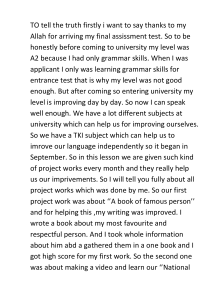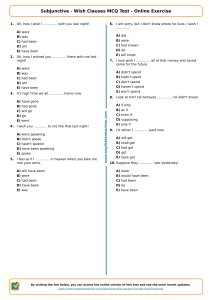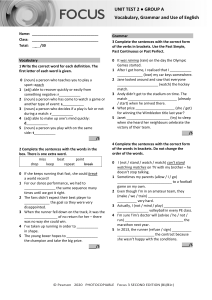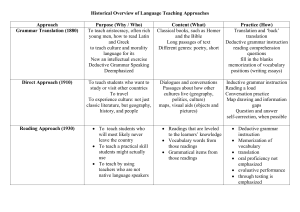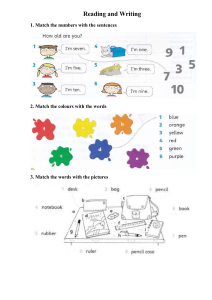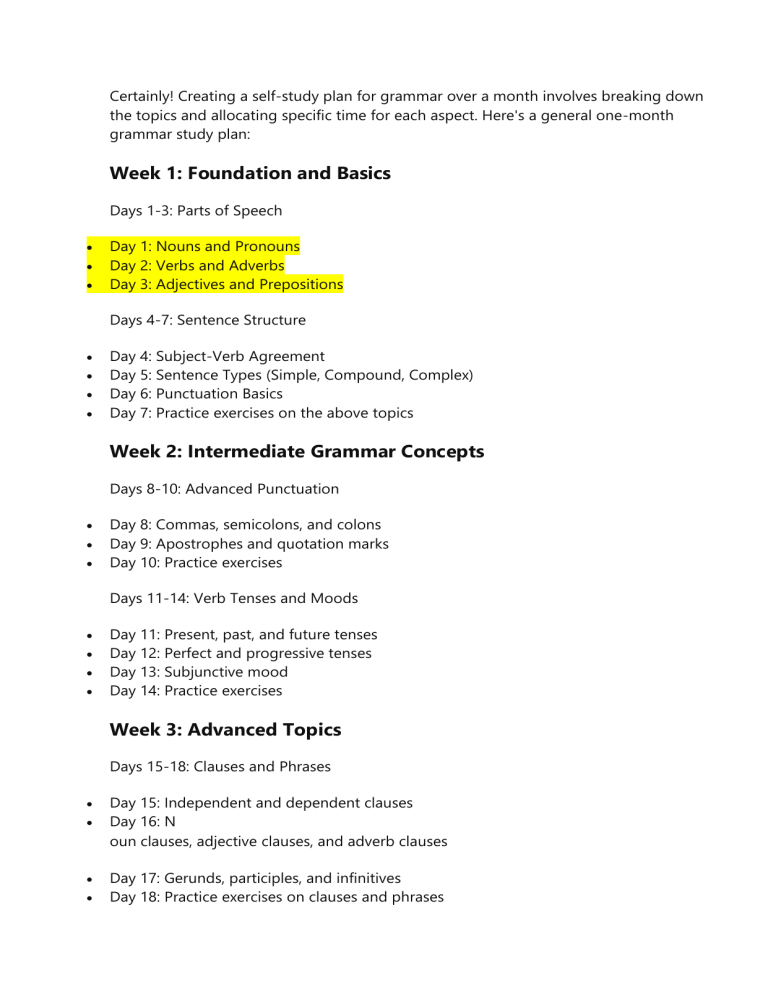
Certainly! Creating a self-study plan for grammar over a month involves breaking down the topics and allocating specific time for each aspect. Here's a general one-month grammar study plan: Week 1: Foundation and Basics Days 1-3: Parts of Speech Day 1: Nouns and Pronouns Day 2: Verbs and Adverbs Day 3: Adjectives and Prepositions Days 4-7: Sentence Structure Day 4: Subject-Verb Agreement Day 5: Sentence Types (Simple, Compound, Complex) Day 6: Punctuation Basics Day 7: Practice exercises on the above topics Week 2: Intermediate Grammar Concepts Days 8-10: Advanced Punctuation Day 8: Commas, semicolons, and colons Day 9: Apostrophes and quotation marks Day 10: Practice exercises Days 11-14: Verb Tenses and Moods Day 11: Present, past, and future tenses Day 12: Perfect and progressive tenses Day 13: Subjunctive mood Day 14: Practice exercises Week 3: Advanced Topics Days 15-18: Clauses and Phrases Day 15: Independent and dependent clauses Day 16: N oun clauses, adjective clauses, and adverb clauses Day 17: Gerunds, participles, and infinitives Day 18: Practice exercises on clauses and phrases Days 19-21: Sentence Combining and Transformation Day 19: Combine simple sentences Day 20: Transform sentences into different structures Day 21: Practice exercises on sentence transformation Week 4: Review and Practice Days 22-24: Review and Reinforce Day 22: Review all topics covered so far Day 23: Identify and work on weak areas Day 24: Additional practice exercises Days 25-27: Application and Writing Day 25: Apply grammar rules in writing Day 26: Edit and revise sentences for grammatical correctness Day 27: Write short paragraphs or essays focusing on proper grammar usage Days 28-30: Final Review and Mastery Day 28: Thorough review of challenging concepts Day 29: Practice tests or quizzes Day 30: Final review and reflection on progress
